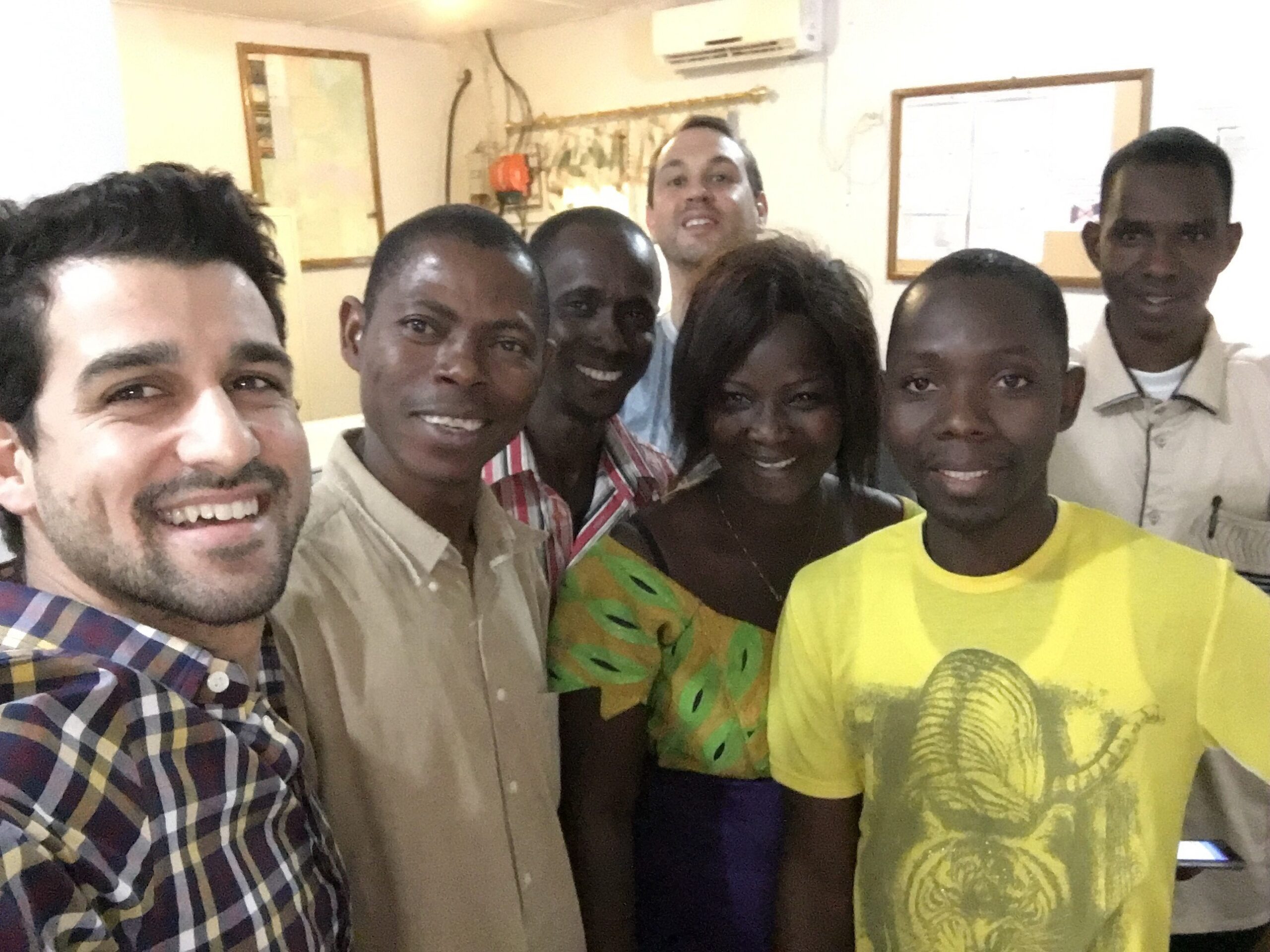
Volunteer Post
Wonderful Lessons in Guinea
Steven Luna, F2F Volunteer
Steven Luna recently completed a volunteer assignment with the Agriculture Education and Market Improvement Program in Guinea. He shares his thoughts on the experience in today’s volunteer blog entry:
“Before arriving to Guinea, I had my expectations about the assignment and the country itself. I had calls with the program director and technical assistance manager regarding the assignment. I read country reports on Guinea from the World Bank, the African Development Bank, and the Economist Intelligence Unit to get a better idea of the current environment in Guinea. I even tried to learn a little French. Even with all my pre-departure preparations, my expectations were not aligned with my experience. Now, that’s not to say that this is bad, rather, it is a wonderful lesson; you don’t know what you don’t know until you experience it.
For example, I expected to have a pretty significant language barrier as I did not know French but to my surprise, quite a few Guineans speak Spanish. After I learned more about the history, I gained a better understanding of the current culture in Guinea; the hierarchical structure, the high power distance, and the local business etiquette. Because of this, I was able to adjust my communication style to gain influence and trust among various stakeholders. Cultural immersion is a very rewarding experience that cannot be gained from reading country reports.
Now, I realize you need more context as to why I was in Guinea in the first place. I am a business consultant recruited as a volunteer for Winrock’s USAID-funded Agriculture Education and Market Improvement Program (AEMIP). My original scope was to create a business and sustainability plan for a cyber café for the Institut Supérieur Agronomic et Vétérinaire de Faranah (ISAV/F). Unfortunately, due to the current external infrastructure gap (no fiber optics or cables exist), ISAV/F would not be able to sustain the café, and yet, this isn’t the underlying issue.
Before I arrived in Guinea, there was one question I never thought to ask, and it ended up completely changing my project scope in order to create the most value, in terms of social, economical, and human impact, for the client system: do the faculty and students know how to use a computer? Computer literacy is something most of us take for granted, and I never even thought to test that assumption for my assignment. It took being on the ground to uncover this behavior gap, which threatens the objectives of AEMIP if left unchecked. The new scope: align all stakeholders with a training framework to develop a pilot program to incorporate technology into the coursework of a small sample of classes to create knowledge and build capabilities with potential to scale. The vision is to create the behavior where computers are used as tools to better enhance the position of the school and the competencies of its faculty and students.
I can go on with the lessons learned but let me acknowledge that none of this would have been possible if not for the amazing people at AEMIP. The hospitality and support given to me has been tremendous, and their passion is awe-inspiring. They are a family and it was incredible witnessing their dedication in the work that they do, and it is reassuring to know that the technology pilot program is in the hands of folks like these.
In closing, considering that this was my first time in Africa and my first post-MBA project, my experience far exceeded my expectations. I have grown both professionally and personally, and I highly recommend anyone thinking about volunteering for Winrock International to just do it. Whatever your expectations are, I guarantee that your experience will surpass them, leaving you with rich and fond memories.”

